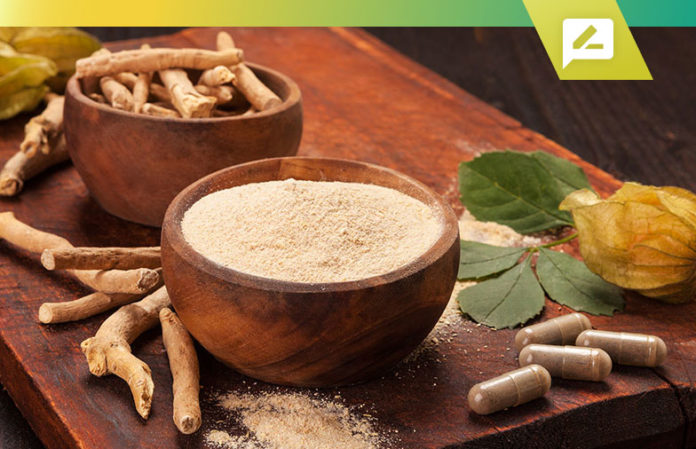Ashwagandha is a trendy herbal extract that has skyrocketed in popularity in recent years.
Although ashwagandha may seem new, the unique supplement has been used for thousands of years in various ways and cultures. Ashwagandha played a role in ancient Indian (Ayurvedic) medicine, with recorded usage dating back 3,000 to 4,000 years. In ancient India, ashwagandha may have been used to treat various ailments, reduce stress, and relieve anxiety, among other effects.
Today, you don’t have to travel to India to discover the benefits of ashwagandha. You can find plenty of effective, affordable supplements on Amazon. You can even find ashwagandha supplements at CVS, Walmart, and other major retailers.
Modern science continues to verify certain benefits of ashwagandha. Today, we’re highlighting the best ashwagandha supplements of 2024, the potential benefits of ashwagandha, and everything else you need to know about this ancient adaptogen.
Ranking the 17 Best Ashwagandha Supplements of 2024
Our editorial team analyzed, researched, and tested the top ashwagandha supplements available today. Here are our picks for the best ashwagandha supplements of 2024. These rankings are obviously not comprehensive, and you should conduct your own individualized research before beginning the use of any particular supplement.
Contents
Physician’s Choice Ashwagandha
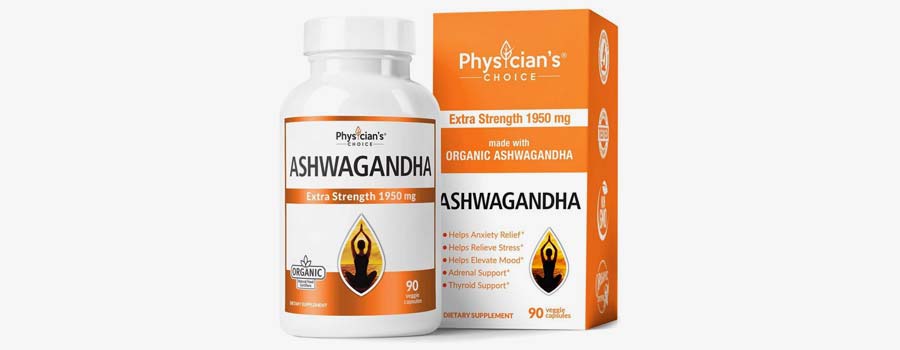
Physician’s Choice Ashwagandha offers one of the highest dosages of ashwagandha on this list. It’s also one of the best-rated and most popular ashwagandha supplements on Amazon. In fact, it’s currently the #1 best-seller in the entire ‘ayurvedic products’ category on Amazon.
Each serving of Physician’s Choice Ashwagandha contains 1,950mg of organic ashwagandha root powder extract. There’s also 15mg of organic black pepper extract to boost absorption. Physician’s Choice claims the supplement can support the thyroid, relieve anxiety, support the adrenal glands, boost energy, and provide other benefits. Despite being one of the best-rated ashwagandha supplements here, it’s available at a very competitive price.
Price: $16 (30 Capsules / 30 Servings)
Get Physician’s Choice Ashwagandha on Amazon
NutriFlair Organic Ashwagandha Capsules
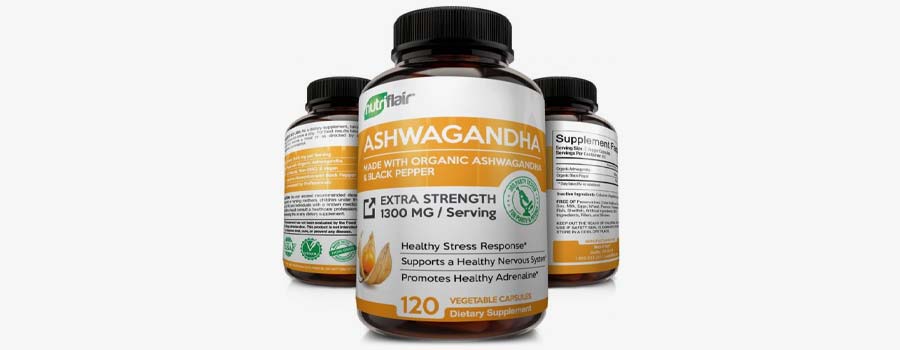
NutriFlair’s Ashwagandha supplement delivers 1,300mg of ashwagandha extract in each serving. The supplement promotes a healthy stress response, supports a healthy nervous system, and promotes healthy adrenal glands, among other benefits. Like other top-ranked options on our list, NutriFlair’s Ashwagandha supplement is very well-rated and competitively-priced, currently holding an average rating of 4.7 stars out of 5 on Amazon.
NutriFlair has added 10mg of organic black pepper to the formula to boost absorption. The formula is also certified organic by the Utah Department of Agriculture & Food. And, with 60 servings for just $14, it’s one of the best-value ashwagandha supplements on this list.
Price: $14 (120 Capsules / 60 Servings)
Get NutriFlair Organic Ashwagandha Capsules on Amazon
VPK by Maharishi Ayurveda Ashwagandha

It’s not one of the best-known supplement brands on this list, but VPK by Maharishi Ayurveda makes a popular ashwagandha formula. The company specifically labels the formula as a stress management supplement. It also claims to improve communication between the brain and gut, increase stamina and energy, and improve overall wellbeing, among other benefits.
Each 2 tablet serving contains 950mg of organic ashwagandha root. There’s just one other ingredient: organic tapioca starch to create the tablet. If you want high-quality ashwagandha from a supplement company specializing in Ayurvedic formulas, then VPK by Maharishi Ayurveda Ashwagandha may be the right choice.
Price: $13 (60 Capsules / 30 Servings)
Get VPK by Maharishi Ayurveda Ashwagandha on Amazon
Amazing India Ashwagandha

Ashwagandha has played a crucial role in ancient Indian (Ayurvedic) medicine for 3,000 years. Amazing India honors this heritage with its ashwagandha supplement, which claims to promote healthy immunity, support stress management, and promote vitality.
Each capsule contains 500mg of organic ashwagandha root powder with no other listed active ingredients. It’s all packaged into a vegetable capsule. With 120 capsules in each bottle, you can easily double the dose to get a similar ashwagandha dosage to the top supplements on our list.
Price: $11 (120 Capsules / 120 Servings)
Get Amazing India Ashwagandha on Amazon
NaturaLife Labs Ashwagandha 2,100mg

NaturaLife Labs Ashwagandha is a high-powered ashwagandha supplement containing 2,100mg of ashwagandha in each serving. It’s a particularly popular supplement on Amazon, where each bottle (33 servings per bottle) sells for around $16.
NaturaLife Labs claims their ashwagandha supplement could naturally relieve anxiety, enhance mood, and support your immune system and thyroid, among other benefits. Amazon reviewers clearly agree, as the supplement has an average rating of 4.5 stars out of 5 with 3,700+ reviews.
Price: $16 (90 Capsules / 33 Servings)
Get NaturaLife Labs Ashwagandha 2,100mg on Amazon
NutriRise Ashwagandha
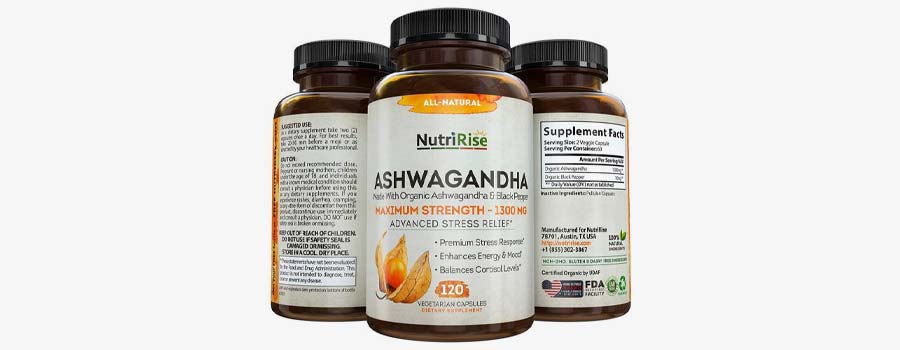
NutriRise Ashwagandha is officially the most popular ashwagandha supplement on Amazon. With 10,000+ reviews, the supplement has an average rating of 4.6 stars out of 5. Each two capsule serving contains 1,300mg of organic ashwagandha and 10mg of organic black pepper for absorption.
Austin, Texas-based NutriRise claims their supplement can relieve anxiety, help manage stress, and support your mood and thyroid, among other benefits.
Price: $16 (120 Capsules / 60 Servings)
Get NutriRise Ashwagandha on Amazon
Doctor’s Formula Ashwagandha
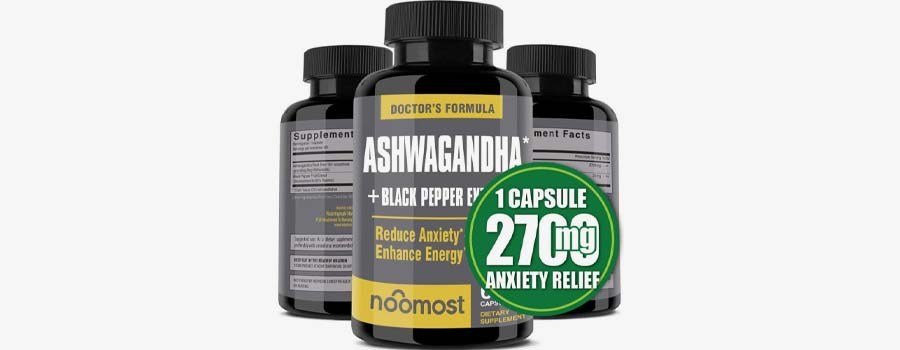
Doctor’s Formula officially has the highest dose of ashwagandha on this list, featuring 2,700mg of ashwagandha extract in each capsule. With other supplements, you need to take 2 or 3 capsules to get that equivalent dosage.
Doctor’s Formula Ashwagandha sources its herbal extract from a 15:1 concentrate. Each serving purportedly provides 9mg of withanolides, the active chemical within ashwagandha that purportedly gives it power. There’s also 20mg of black pepper fruit extract to enhance absorption.
Price: $19 (60 Capsules / 60 Servings)
Get Doctor’s Formula Ashwagandha on Amazon
Now Supplements Standardized Extract Ashwagandha

Now Supplements is one of the industry’s best-known supplement companies. The company’s ashwagandha supplement has a much lower dose than other supplements listed here, although it’s also the most affordable formula on our list.
Each capsule contains 450mg of standardized ashwagandha extract, and each bottle is priced under $7 for 90 capsules. The dose is smaller than competing supplements, but you can easily double or triple the serving size to boost the active ingredient.
Price: $7 (90 Capsules / 90 Servings)
Get Now Supplements Standardized Extract Ashwagandha on Amazon
Microingredients Organic Ashwagandha Powder

Most ashwagandha supplements listed here use capsules to deliver the active ingredient. Microingredients gives it to you in the form of bulk powder. The USDA Organic certified formula consists of a bulk bag of ashwagandha extract powder.
Microingredients claims the formula can relieve stress, balance mood, and provide other benefits. You can easily add the supplement to foods and beverages – like a smoothie – to incorporate ashwagandha into your life. With 340 servings per container, it’s the best-value option on our list and it’s not even close.
Price: $20 (340 x 2g Scoops / 340 Servings)
Get Microingredients Organic Ashwagandha Powder on Amazon
Maui Herbs Ashwagandha Tincture

Maui Herbs Ashwagandha is a tincture that delivers a strong dose of ashwagandha to relieve stress and anxiety, support strength and energy, and provide other benefits. The liquid mixes instantly with your favorite beverage, including a coffee, smoothie, shake, or glass of water.
Each serving contains about 685mg of certified organic ashwagandha root. If you want ashwagandha without capsules or tablets, then Maui Herbs Ashwagandha may be the right tincture for you.
Price: $21 (168 x 0.7 mL Droppers / 168 Servings)
Get Maui Herbs Ashwagandha Tincture on Amazon
Toniq Ashwagandha
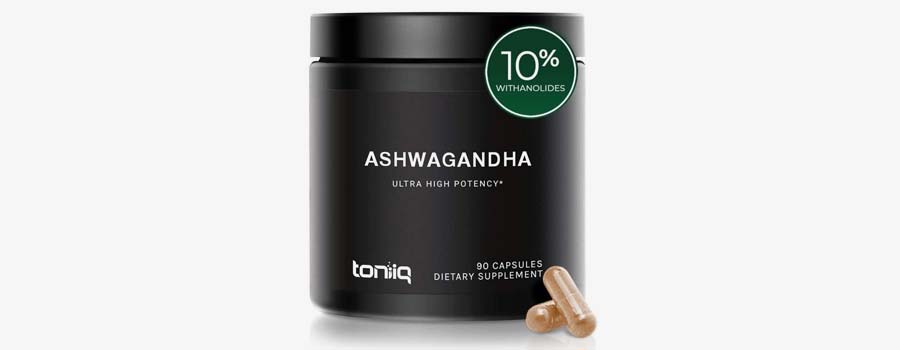
Toniq Ashwagandha might have the coolest-looking packaging on this list. It also has a strong dose of ashwagandha. Each 2 capsule serving contains 1,300mg of organic ashwagandha root in a 15:1 extract. Because it contains 10% withanolides, the formula is purportedly equivalent to 19,500mg of ashwagandha powder.
Toniq has added 10mg of black pepper extract for added absorption. There are just two inactive ingredients, including a pullulan vegetable capsule and organic rice concentrate. Toniq claims the formula can relieve anxiety and provide other benefits.
Price: $17 (90 Capsules / 45 Servings)
Get Toniq Ashwagandha on Amazon
Himalaya Organic Ashwagandha
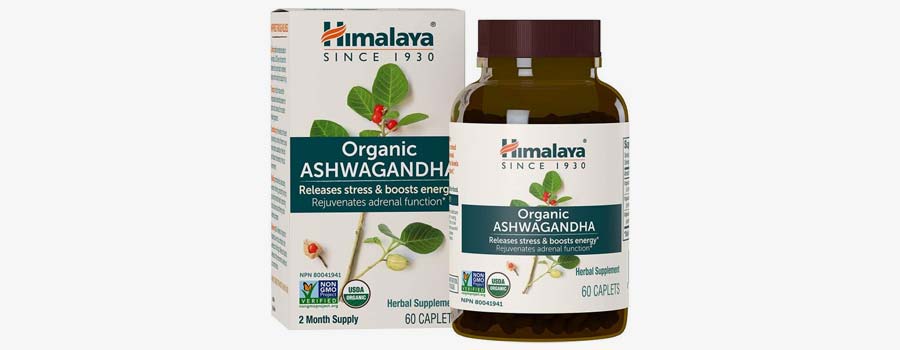
Himalaya has been making supplements since the 1930s. Today, the company’s USDA Organic certified ashwagandha claims to reduce stress and boost energy by rejuvenating adrenal function. It’s priced at just $15 for a 2 month supply, delivering 380mg of organic ashwagandha powder (with 0.2% withanolides) and another 280mg of organic ashwagandha extract (with 0.5% withanolides) per serving.
Himalaya Organic Ashwagandha comes from India, although the company is based in Sugar Land, Texas. The supplement is popular and well-rated on Amazon, where it has an average rating of 4.5 stars out of 5 with 850+ customer reviews.
Price: $15 (60 Caplets / 60 Servings)
Get Himalaya Organic Ashwagandha on Amazon
FGO Organic Ashwagandha Root Powder

Most ashwagandha supplements here come in the form of tablets or capsules – not powder. FGO Organic, however, makes a USDA Organic certified ashwagandha root powder, selling the formula in a bulk, resealable bag.
The ashwagandha root powder is 100% raw and imported from India. FGO Organic claims the formula can alleviate stress, anxiety, fatigue, low energy, insomnia, and more. You can add the powder to foods or beverages to get more ashwagandha extract in your diet.
Price: $15 (226 x 2g Scoops / 226 Servings)
Get FGO Organic Ashwagandha Root Powder on Amazon
Tribe Organics Ayurveda KSM-66 Ashwagandha Root Extract
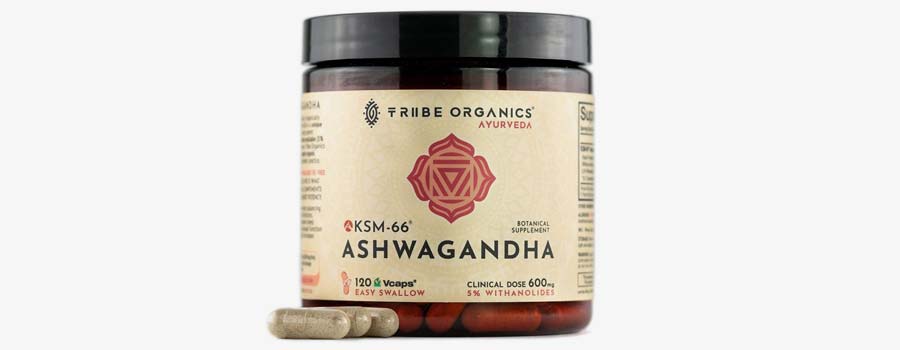
Tribe Organics offers ‘full spectrum’ standardized ashwagandha root extract, packaging the formula into vegetable capsules. The formula contains 600mg of KSM-66 ashwagandha extract in each serving standardized to contain 5.0% withanolides. KSM-66 is a patented type of ashwagandha used by certain supplements on this list. Overall, Tribe Organics claims the formula is equivalent to 6,000mg of ashwagandha extract based on its concentration.
Each stylishly-packaged jar contains 120 capsules (60 servings). By taking 2 capsules daily, you can purportedly relieve stress and anxiety, support adrenal health, reduce cortisol stress hormone, and enjoy other benefits.
Price: $25 (120 Capsules / 60 Servings)
Get Tribe Organics Ayurveda KSM-66 Ashwagandha Extract on Amazon
Organic India Ashwagandha

Organic India sells an ashwagandha supplement that’s certified USDA Organic and claims to promote a healthy stress response. The supplement contains 800mg of organic ashwagandha root extract in each 2 capsule serving.
Organic India is popular on Amazon, although it’s much more expensive than higher-ranked options on our list. At $29 for 45 servings, it’s unclear how much better Organic India Ashwagandha is compared to similar, cheaper-priced supplements.
Price: $29 (90 Capsules / 45 Servings)
Get Organic India Ashwagandha on Amazon
Gaia Herbs Ashwagandha Root

Gaia Herbs sells an ashwagandha root supplement that claims to help your body cope with stress in a healthy way. Each bottle contains 120 vegan liquid capsules. There’s 350mg or organic ashwagandha extract in each formula, including 2.5mg of total withanolides.
By taking the supplement daily, Gaia Herbs claims you can support the immune system, balance your mood, and support energy levels, among other benefits. That all sounds good, although Gaia Herbs Ashwagandha Root is one of the most expensive formulas on this list in terms of price per dosage.
Price: $33 (120 Capsules / 120 Servings)
Get Gaia Herbs Ashwagandha Root on Amazon
Pure Encapsulations Ashwagandha

Pure Encapsulations sells a high-priced ashwagandha supplement that delivers 500mg of ashwagandha (standardized to 2.5% withanolides) in each 1 capsule serving. It’s more expensive with a lower dose and concentration than many other higher-ranked options on our list, which is why it’s near the bottom.
Pure Encapsulations claims the formula can support cognitive function, support overall health, and support healthy stress levels, along with other benefits.
Price: $38 (120 Capsules / 120 Servings)
Get Pure Encapsulations Ashwagandha on Amazon
How We Ranked
Our editorial team considered all of the following characteristics before ranking the ashwagandha supplements above.
Ashwagandha Dosage: You’re taking an ashwagandha supplement because you want a strong dosage of ashwagandha. We heavily favored supplements with a strong dosage (1,000mg or higher) of ashwagandha extract.
Black Pepper Extract: Studies show that black pepper extract can enhance the absorption of ashwagandha. Many of the top-ranked ashwagandha supplements contain black pepper extract for this reason.
Withanolide Concentration: Some ashwagandha supplements disclose their withanolide concentration, while others do not. Good supplements contain approximately 10% withanolides to maximize the potential benefits of ashwagandha. Some supplements also disclose the concentration of the ashwagandha extract (say, 15:1 or 10:1). Withanolides are the active ingredients in ashwagandha that appear to give the herb its power.
Organic Certification: Organic certification is especially important when dealing with extracts. When you’re condensing large amounts of food into a concentrated formula, even small amounts of toxins and chemicals can build up. We favored ashwagandha supplements that were certified organic by a legitimate organization – like the USDA or similar government groups.
Inactive or Filler Ingredients: Good ashwagandha supplements minimize filler ingredients or use natural inactive ingredients. We avoided ashwagandha supplements with excessive preservatives or other unnatural inactive ingredients.
Pure Ashwagandha: Some supplements add other active ingredients to support various effects – like turmeric to reduce inflammation. However, we focused exclusively on ashwagandha supplements that contained pure ashwagandha with no other active ingredients.
Manufacturer Reputation: Some manufacturers have an extensive track record of making high-quality supplements for decades. Other companies use anonymous, third party supplement companies or have a limited track record.
Transparency: Good supplement companies are transparent with testing, dosages, manufacturing location, and ingredient sources. Bad supplement companies hide this information. We preferred supplement companies that were open and honest with their labels.
Advertised Health Benefits: Some ashwagandha supplements make ridiculous, unproven claims about their health benefits. Other supplements are more honest with health benefits. Supplements aren’t as regulated as drugs in terms of health benefits, although supplements cannot advertise themselves as cures or treatments for specific conditions.
Who Should Use Ashwagandha?

Ashwagandha is part of a class of medicinal herbs known as adaptogens. These adaptogenic herbs are shown to relieve certain symptoms of stress. Many people take adaptogens to relieve the physical and mental symptoms of stress.
People take ashwagandha for all different reasons. Some take ashwagandha to boost energy, for example. Ashwagandha may support multiple body systems, raising your physical and mental energy in various ways.
Some take ashwagandha to boost muscle strength and recovery. Surprisingly, ashwagandha has been shown to boost muscle strength, enhance recovery, and provide other benefits. Ashwagandha seems to be particularly effective for strength training or resistance training, as several studies have shown it can enhance strength training results.
Because of its muscle boosting, endurance boosting, and recovery enhancing benefits, ashwagandha is popular among athletes at all levels. No sports body has banned the use of ashwagandha.
Others take ashwagandha to relieve stress. If you have a stressful job, for example, or are noticing symptoms of stress that affect your physical and mental wellbeing, then an adaptogen like ashwagandha could help. Busy modern lifestyles have increased stress and burnout across all generations, and many people use specific supplements to relieve stress.
You may take ashwagandha to boost virility, libido, or sexual function. One study found that men taking ashwagandha experienced improved sexual function and virility, increasing the chances of impregnating a partner.
Some people take ashwagandha because it’s a crucial part of Ayurvedic medicine, and they believe in the power of ancient Indian medicine. Ashwagandha has been used by ayurvedic practitioners for over 3,000 years. Typically, ayurvedic practitioners use ashwagandha as a general cure-all to boost multiple aspects of health and wellness, although it could also be used to target specific benefits.
If you find yourself forgetting information, then ashwagandha may help. There’s some evidence that ashwagandha supports memory formation and enhances memory, making it easier to recall certain subjects. One study on mice found that ashwagandha reduced the risk of degenerative brain disease, although these results have not been replicated in humans.
Do you work out frequently – yet struggle to lose weight? It’s possible you have thyroid issues. Thyroid malfunction can affect your metabolism, making it more difficult to lose weight. There’s some evidence that ashwagandha supports good thyroid function.
Some people take ashwagandha to boost their immune system. Ashwagandha has become particularly popular during the COVID-19 pandemic because some believe it supports immune function.
Others take ashwagandha for cardiovascular health, adrenal gland support, or anti-aging, among other benefits.
Benefits of Ashwagandha
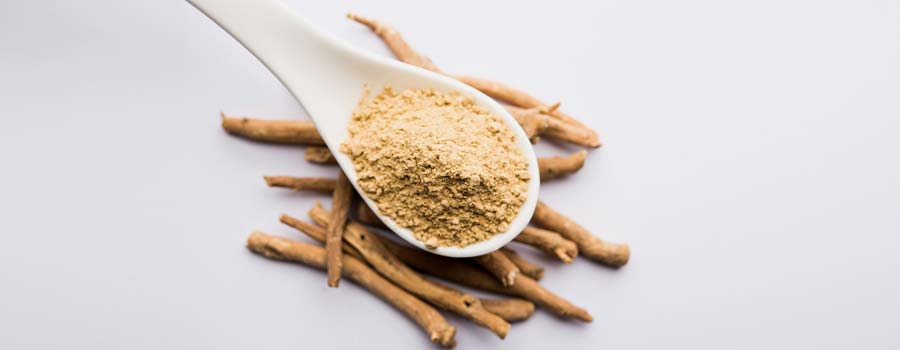
Ashwagandha, also known as Withania somnifera, is a small, woody plant native to India and North Africa. The plant has been used in ancient Indian (Ayurvedic) medicine dating back 3,000 years. People used it to protect against various ailments.
Today, we’re learning more about the benefits of ashwagandha. Modern science and clinical trials have revealed exciting information about the ancient Indian herb.
Some studies have shown that ashwagandha reduces stress and anxiety, for example. Other studies have linked ashwagandha to better memory, improved mood, and healthier blood sugar levels. We need more large scale human research to confirm these benefits, although early research is promising.
First, multiple studies seem to suggest that ashwagandha can lower stress and help manage anxiety. Ashwagandha is considered an adaptogen because it helps the body manage physical symptoms of stress.
Ashwagandha appears to manage stress by lowering levels of cortisol, your ‘stress hormone’. Your adrenal glands produce cortisol in response to stress.
This study, for example, found that taking 125mg of ashwagandha per day lowered cortisol levels by 11%. Other studies have found that taking dosages as high as 5,000mg of ashwagandha per day can lower cortisol and stress as much as 32%.
Many people take ashwagandha to lower inflammation. Ashwagandha may have anti-inflammatory effects within the body, which could support your immune system. By reducing inflammation, ashwagandha could make it easier for your immune system to function.
This study published in 2009, for example, showed that taking 12mL of ashwagandha root extract per day could increase levels of immune cells, making it easier for your body to fight infection. Other studies have shown that taking 250 to 500mg of ashwagandha per day could reduce a key marker of inflammation by up to 30%, suggesting that ashwagandha has significant anti-inflammatory effects.
Ashwagandha could also lower blood sugar levels. Studies have shown that ashwagandha may lower blood sugar in both healthy people and those with diabetes.
In one 4-week study involving 25 people, ashwagandha reduced fasting blood sugar levels 3 times better than a placebo. In another study, people with type 2 diabetes took an ashwagandha supplement for 30 days. Researchers found the supplement lowered blood sugar as effectively as traditional diabetes drugs.
Overall, ashwagandha has shown a genuine ability to reduce blood sugar and help manage diabetes symptoms. However, most of these studies have been small, involving fewer than 25 people. This ashwagandha study published in 2000, for example, found that ashwagandha improved blood sugar management – but the study involved just 6 people. Never replace your diabetes medication with a supplement, and always talk to your doctor.
Some people even use ashwagandha to boost fertility, and science has reinforced certain fertility boosting benefits of ashwagandha. Men may be able to increase their virility with ashwagandha, and studies have shown that men taking ashwagandha may be more likely to get a partner pregnant.
In this 3-month study, researchers told 75 infertile men to take 5,000mg of ashwagandha per day. Researchers found the men increased sperm count and motility after 3 months of daily ashwagandha usage.
In another study, participants with high stress levels and low virility took 5,000mg of ashwagandha per day. By the end of the 3-month study, 14% of partners of these men had become pregnant.
Some people take ashwagandha to improve muscle strength and recovery. Researchers published the results of a randomized controlled trial in 2015 where they examined how ashwagandha impacted recovery.
Participants aged 18 to 50 with limited weight training experience took either 600mg of ashwagandha per day or a placebo. Then, participants followed a strength training routine involving bench presses, leg extensions, and other exercises. By the conclusion of the study, researchers noticed impressive results, including higher strength and lower body fat percentage among the ashwagandha group:
“This study reports that ashwagandha supplementation is associated with significant increases in muscle mass and strength and suggests that ashwagandha supplementation may be useful in conjunction with a resistance training program.”
Specifically, men taking ashwagandha had 1.6 to 2.3 times larger increases in muscle size compared to the placebo group.
Other studies have found similar results. In a separate 8-week study, participants took 500mg of ashwagandha extract per day and increased their muscular power by 1%, while a group taking a placebo showed no improvements. Other research has verified these results, with participants taking 750 to 1,250mg of ashwagandha per day.
Ashwagandha has shown a genuine ability to boost memory. Some take ashwagandha daily to support memory and recall, and modern science has reinforced this effect.
One 8-week study showed that taking 600mg of ashwagandha extract per day improved memory, attention, and task performance more than a placebo. In another study, healthy men taking 500mg of ashwagandha per day for 2 weeks performed much better on tests compared to a placebo group. Both of these studies were small, and there’s limited other research exploring ashwagandha’s effect on memory. However, early research is promising, and some use ashwagandha for its nootropic effects.
Some also believe that ashwagandha’s brain boosting benefits come from its ability to reduce stress. By lowering cortisol in the brain, ashwagandha could improve your brain’s ability to function.
None of this information is surprising to Ayurvedic medicine practitioners: they’ve been using ashwagandha has a nootropic for centuries. Ashwagandha has been traditionally used to protect cognitive health, among other benefits.
Your thyroid plays a crucial role in metabolism and weight loss. If your thyroid isn’t functioning properly, then you may struggle with your metabolism or find it hard to lose weight. Some people take ashwagandha to support thyroid health, and some scientific evidence backs this claim up.
Researchers believe ashwagandha impacts thyroid function by targeting stress hormones like cortisol. Stress responses (like higher cortisol) slow your metabolism by suppressing thyroid function. Ashwagandha may reverse this effect. One double-blind, randomized, placebo-controlled study published in 2018 by researchers in India found that ashwagandha may have thyroid-supporting effects.
For the study, researchers gave 50 participants either ashwagandha extract or a placebo. Participants took 600mg of ashwagandha extract per day over an 8-week period. By the end of the 8-week period, researchers concluded that treatment with ashwagandha “may be beneficial for normalizing thyroid indices in subclinical hypothyroid patients”.
Some take ashwagandha to improve heart health. Stress impacts the cardiovascular system, and ashwagandha may support cardiovascular health by relieving stress.
One lab test on animals found that ashwagandha could slow the growth of cancer cells by boosting the effects of radiation therapy. However, these effects have not been tested in humans.
Other studies have shown that ashwagandha can reduce cholesterol and blood pressure among healthy individuals. This study, for example, found that regular ashwagandha usage led to lower cholesterol, while this study saw a similar drop in blood pressure. Another study from 2017 found that ashwagandha led to a significant drop in diastolic blood pressure in patients with stress-oriented hypertension, while this study from 2014 saw a significant improvements in endothelial function in patients with type 2 diabetes.
Many people take ashwagandha for overall anti-aging benefits. Surprisingly, researchers have observed these anti-aging benefits in several studies. In fact, ashwagandha is also known as a ‘rasayana’ in ancient Ayurvedic medicine, which means ‘an herb that destroys old age and disease’. Traditionally, ashwagandha was used to support youthful vitality, boost immunity, and reverse certain effects of aging, among other benefits.
This study found that ashwagandha extended lifespan by 20% – although the study involved worms and not humans. In another study, ashwagandha significantly reduced the risk of brain degeneration with age – although the study involved mice and not humans.
Another study on human cells in vitro (i.e. in a test tube) found that ashwagandha increased telomerase activity by up to 45%. Telomerase activity is a process that extends the life and function of cells by protecting their ability to self-replicate.
Dosage
Most ashwagandha supplement companies recommend a dose of 500mg to 1,500mg per day.
We need more large scale human research to verify the effective dosage of ashwagandha. However, early research suggests certain dosages are more effective than others.
For reducing stress and anxiety, studies have used ashwagandha dosages as low as 125mg and as high as 5,000mg. Fortunately, ashwagandha was well-tolerated at all of these dosages, with few side effects reported healthy adults.
For diabetes and blood sugar management, studies have used dosages of 250mg to 3,000mg.
Many ashwagandha studies use a dose of 400 to 600mg per day, split into one or two doses.
Consider the concentration of your ashwagandha extract. Big numbers aren’t always better. Supplements might have different concentrations of withanolides.
Side Effects
Studies on ashwagandha have not mentioned any side effects connected to the adaptogenic herb. According to all human studies to date, ashwagandha is safe for healthy adults to take.
However, there have been limited studies on ashwagandha in humans. Many of the studies linked above involve just 5 to 50 people, for example. There’s limited widescale human research proving ashwagandha is safe. Talk to your doctor before taking any supplement – including ashwagandha extract supplements.
Frequently Asked Questions About Ashwagandha
Although this supplement has been used for thousands of years in various cultures and customs, information about Ashwagandha is relatively scarce. This section will answer some of the most commonly asked questions consumers have about Ashwagandha.
Q: What is ashwagandha?
A: Ashwagandha is an herb used in traditional Indian (Ayurvedic) medicine. The root and extract of the herb have been linked to certain benefits, including stress relief, muscle recovery, anxiety reduction, and more. Companies today produce a number of different supplements that use ashwagandha as a key ingredient.
Q: What does ashwagandha mean?
A: The unique name of the ashwagandha herb comes from Sanskrit. Ashva means ‘horse’ and gandha means ‘smell’. Ashwagandha, therefore, means ‘horse-like smell’. It’s named that way because the root of the herb smells like a horse. in Ayurvedic medicine, ashwagandha purportedly confers the strength and virility of a horse, giving an extra layer of meaning to its unique moniker.
Q: What are the benefits of ashwagandha?
A: There’s some evidence that ashwagandha can relieve stress, promote muscle recovery, reduce anxiety, and support other aspects of body health. More human research needs to be done, although early research is promising. We ask that consumers manage their expectations when using this supplement, as research in a peer-reviewed situation is minimal.
Q: Does ashwagandha enhance sexual function?
A: There’s some evidence that ashwagandha can support virility and other aspects of sexual function. In many cases, it was traditionally used for this purpose. Some studies have shown that men who take ashwagandha are more likely to get a woman pregnant, although more research is needed to verify the sexual health benefits of ashwagandha.
Q: Is ashwagandha safe?
A: No major side effects have been reported in any ashwagandha studies to date. When used by healthy adults at a normal dosage, ashwagandha seems safe to take. However, talk to your doctor before taking any supplement – especially if you have a condition or are taking other medications. After all, it's never bad to get a second opinion.
Q: What are the side effects of ashwagandha?
A: Ashwagandha has not been connected to any side effects in any studies to date. More large scale research on humans is needed to verify the safety of ashwagandha, although early research suggests it’s safe.
Q: Can you take ashwagandha every day?
A: Research suggests you can safely take ashwagandha daily. In studies, people have safely taken ashwagandha for 3 to 6 months with no reported side effects – even at higher dosages. However, there are only a few studies on this niche supplement and its implications. We advise users to exercise caution.
Q: What’s the best dose of ashwagandha?
A: Studies on ashwagandha use dosages ranging from 125mg to 5,000mg. Most ashwagandha supplements have a dose between 500mg and 2,000mg. You might have to experience a bit with your ashwagandha doses, especially since there's so little information available from substantiated research studies.
Q: Why do people take ashwagandha?
A: People take ashwagandha for many different reasons. Some take it to boost the immune system. Others take it to boost virility, reduce inflammation, reduce symptoms of aging, or provide other benefits. The multiplicity of applications for this particular supplement are one major reason it continues to gain exposure in the supplement industry and related communities.
Q: Can you get ashwagandha naturally from food?
A: In parts of the world where ashwagandha grows naturally, some people eat the ashwagandha roots, shoots, seeds, and fruit. Otherwise, however, ashwagandha cannot be found in foods unless you specifically add it to a dish.
Q: Where does ashwagandha come from?
A: Ashwagandha grows naturally in North Africa and India. Many supplement companies source their ashwagandha extract from organic farms in India.
Q: What are adaptogens?
A: Ashwagandha is considered an adaptogen, which means it helps the body adjust to physical and mental stressors. Ashwagandha may lower cortisol levels and balance other hormones, for example, helping your body effectively respond to stress.
Q: How does ashwagandha work?
A: Ashwagandha seems to work by reducing cortisol, promoting healthy immune function, reducing inflammation, and relieving environmental stress throughout the body.
Q: Can men take ashwagandha?
A: Both men and women take ashwagandha. Some men take ashwagandha to boost virility or sexual function. Others take it to improve athletic function. However, men can take ashwagandha to enjoy any of the benefits listed above.
Q: Can women take ashwagandha?
A: Many women take ashwagandha to support various benefits. Ashwagandha is used by both men and women, and there's no reason to think that the benefits of ashwagandha are stronger for one sex than for the other.
Q: Can ashwagandha improve joint health?
A: There’s some evidence that ashwagandha can improve joint health by reducing inflammation and supporting the immune system.
Q: What is a rasayana?
A: Ashwagandha is considered a rasayana in Ayurvedic medicine. Rasayana is a term for any plant or herb that promotes longevity, vitality, and happiness.
Q: Where can you buy ashwagandha?
A: Ashwagandha supplements are widely available through Amazon and other retailers. You may also find ashwagandha supplements at pharmacies (like CVS) or retail stores (like Walmart). A quick Google search should help you figure out where to buy ashwagandha near you.
Q: How do you use ashwagandha?
A: Most ashwagandha supplements come in capsule or tablet form. You take 1 or 2 capsules per day to support various benefits. Some ashwagandha supplements use a raw, bulk powder. You can add this powder to foods or beverages as needed. The supplement company you choose to work with should clearly articulate specific dosage and use instructions on their product website.
Q: Can ashwagandha improve muscle strength?
A: Multiple studies have shown that ashwagandha can improve strength training results compared to a placebo. Ashwagandha could enhance muscle recovery, making it easier to continue working out and building muscle.
Q: What’s the connection between ashwagandha and horses?
A: The name ‘ashwagandha’ literally translates to “horse-like scent” in Sanskrit. Some ashwagandha supplements reference ‘horsepower’ or similar horse-related terms.
Q: Can you take too much ashwagandha?
A: Studies on ashwagandha have used dosages as high as 9,000mg with no reported side effects. Most ashwagandha supplements, however, recommend a dose between 500mg and 1,500mg per day.
Q: Can you use ashwagandha for sleep?
A: Some find that ashwagandha has a mild sedative effect, and some take ashwagandha before sleep for this reason. The research is obviously limited, so speak to your doctor if your sleeping problem has become debilitating.
Q: Can ashwagandha help insomnia?
A: Some find that ashwagandha helps insomnia, making it easier to fall asleep. There are few studies reinforcing this benefit, but it’s possible ashwagandha could support normal sleep. If you think you may suffer from clinical insomnia, speak to your physician to help determine the best course of action to improve your sleeping habits.
Q: Can you cook or bake with ashwagandha?
A: You can find plenty of ashwagandha recipes available online, including baked goods and dishes. If you have bulk ashwagandha powder, you can add the powder to various beverages or dishes for an added boost.
Q: What are withanolides?
Q: Withanolides are natural chemicals within the ashwagandha herb. Studies show that withanolides may be the active compound in ashwagandha – the ingredient that provides the benefits. Many ashwagandha supplements list the specific dosage or concentration of withanolides.
Q: What’s a good concentration of withanolides?
A: Most standardized ashwagandha supplements contain 2.5% to 15% withanolides by concentration.
Q: What’s the difference between full spectrum and standardized ashwagandha?
A: Some ashwagandha supplements are full spectrum or ‘whole herb’ formulas, which means they use the full plant and condense the full plant into the final supplement. Other supplements use standardized extract, where active ingredients are concentrated and condensed for maximum purity.
Q: What is the best ashwagandha supplement?
A: Any of the top-ranked ashwagandha supplements on our list are among the best supplements you can buy today. Our list is in no particular order, and the best supplement will depend mostly on your preferences and priorities.
Q: What is KSM-66?
A: KSM-66 is an ashwagandha extract made by a company called Ixoreal Biomed. The company claims to have developed the formula after 14 years of research. Today, many supplements contain KSM-66 ashwagandha extract, while others contain different ashwagandha formulas.
Q: Can ashwagandha boost brainpower?
A: Some studies show that ashwagandha can improve memory and other aspects of cognitive health. Some people take ashwagandha for cognitive benefits – like focus or concentration.
Q: Can ashwagandha boost sex drive?
A: Some take ashwagandha to boost sex drive and increase virility. Some studies have shown men can increase virility with ashwagandha, increasing the chances of impregnating a partner.
Q: Does ashwagandha reduce the effects of aging?
A: Ayurvedic medicine considers ashwagandha to be a rasayana, which literally translates to ‘destroys old age and disease’ in Sanskrit. There’s some evidence that ashwagandha reduces certain symptoms of aging.
Q: What’s the best dosage of ashwagandha?
A: Most studies on ashwagandha use a dosage between 500mg and 5,000mg, while most supplements contain between 500mg and 1,500mg per serving.
Q: Does ashwagandha actually work?
A: Early research on ashwagandha is promising, although many studies are small or involve non-human subjects. More research is needed to verify the benefits of ashwagandha.
Q: What are other names for ashwagandha?
A: Ashwagandha also goes by names like Withania somnifera (its scientific name). Colloquially, some know it as Indian ginseng, poison gooseberry, or winter cherry.
Q: Has ashwagandha really been used for 4,000 years?
A: Usage of ashwagandha dates back thousands of years to ancient Indian times. Some claim ashwagandha has been used for 3,000 to 4,000 years.
Final Thoughts
Ashwagandha is an herbal extract used for thousands of years to manage stress, boost immunity, and provide other benefits. Modern science is increasingly verifying the benefits of ashwagandha, although more research needs to be done to confirm it works. Some people swear ashwagandha works as advertised, and they take it daily to support various benefits.
Curious about ashwagandha? Consider taking one of the top-ranked ashwagandha supplements on our list to enjoy the potential benefits of ashwagandha.













![Bowflex Max Total: 2024 Fitness Workout Exercise Machine [Review] Bowflex Max Total: 2020 Equipment Review For Complete Upper and Lower Body Workout](https://www.advancedliving.com/wp-content/uploads/2019/12/Bowflex-Max-Total-218x150.jpg)


